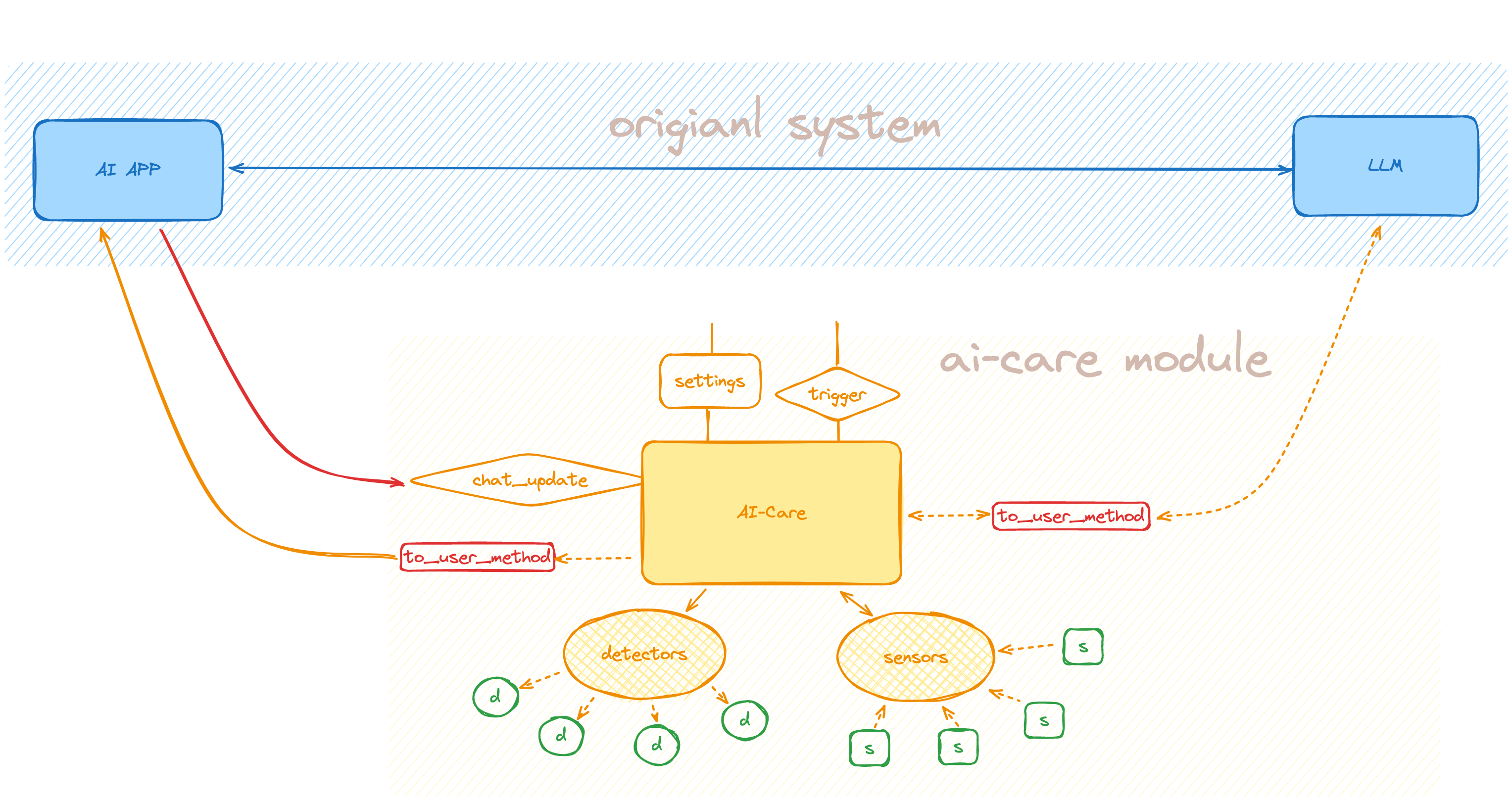Current AI models are only capable of passively responding to user inquiries and lack the ability to initiate conversations. AI-Care endows AI with the capability to speak proactively. With simple settings, AI-Care allows your AI to proactively care for you.
- 💵Low Cost: In terms of both token usage and API call frequencies, AI-Care is designed to minimize these expenses. It operates with an O(1) cost complexity, which means that the costs do not increase with the duration of its activation.
- 🕊️Low Intrusiveness: AI-Care provides its services alongside existing systems, with virtually zero intrusion into the original code. This allows for easy integration of AI-Care services into existing systems.
- 🌍Model Universality: Compatible with all LLM (Large Language Model) models, AI-Care does not rely on function call features or specific ways in which the model is used.
AI-Care employs a sidecar service model, operating non-intrusively alongside the original system without disrupting
the existing communication links with LLM. For minimal setup, only the components highlighted in red
in the diagram are required to be provided.

- Define the "to_llm" and "to_user" interfaces. AICare uses the "to_llm" interface to send messages to the LLM and uses the "to_user" interface to send messages to the user.
def to_llm_method(chat_context, to_llm_messages: list[AICareContext]) -> str | Generator[str, None, None]:
# Here you need to convert `to_llm_messages` into the message format of the LLM you are using
# and send the message to the LLM.
# The return value is the message content replied by the LLM.
# If you are not using stream mode, directly return the reply message string.
# You can also use stream mode, in which case a string generator should be returned.
# If using stream mode, AICare will also automatically use stream mode when sending messages to the user.
pass
def to_user_method(to_user_message: str | Generator[str, None, None]) -> None:
# Here you need to process messages from AICare as you would a normal LLM reply.
# If using stream mode, this method should be able to receive and handle a string generator.
# If the `to_llm` method uses stream mode, then this method should also use stream mode.
pass- Instantiate AICare:
from ai_care import AICare
ai_care = AICare()- Register "to_llm" and "to_user" methods:
ai_care.register_to_llm_method(to_llm_method)
ai_care.register_to_user_method(to_user_method)- Using AICare
# After each round of conversation or when AICare service is needed
ai_care.chat_update(chat_context)# Set guidance information
ai_care.set_guide(guide="your guide")
# Set how long before AI-Care is activated
ai_care.set_config(key="delay", value=60)
# Set the number of times AI-Care selects “ASK_LATER”, setting it to 0 can disable this option.
ai_care.set_config(key="ask_later_count_limit", value=1)
# Set the system default recursive depth for ask.
ai_care.set_config(key="ask_depth", value=1)
# Set the maximum number of chat intervals the system automatically records.
ai_care.set_config(key="n_chat_intervals", value=20)This project is licensed under the MIT License.




